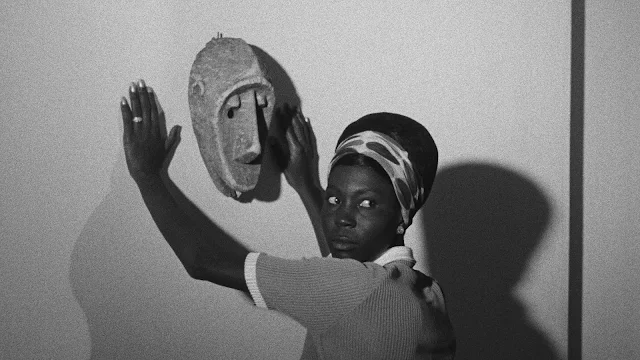 |
| Kinuyo Tanaka in Dragnet Girl |
Joji: Joji Oka
Kazuko: Sumiko Mizukubo
Hiroshi: Koji Mitsui
Misako: Yumeko Aizome
Senko: Yoshio Takayama
Misawa: Koji Kaga
Okazaki: Yasuo Nanjo
Director: Yasujiro Ozu
Screenplay: Tadao Ikeda
Based on a story by Yasujiro Ozu (as James Maki)
Cinematography: Hideo Shigehara
Art direction: Yonekazu Wakita
Yasujiro Ozu clung to silent film for a long time, but who needs sound when you and your cinematographer, Hideo Shigehara, can use the camera as eloquently as they do in Dragnet Girl? Early in the film, the camera explores an office setting, panning over rows of young women at typewriters, clocks slowly ticking away the workday, and rows of men's hats hanging in a hallway. In the last take, one of the hats drops from its hook, as if impatient for quitting time. One of the typists, Tokiko, is summoned from her machine to the office of the president, where she finds his son, Okazaki, who has been putting the moves on her by giving her jewelry, this time a ruby ring. She shrugs off his advances but accepts the ring -- she's living with a gangster, an ex-boxer named Joji, and it's his world that she prefers. This is one of Ozu's forays into the underworld made familiar to us by Hollywood, and it's permeated with echoes of Warner Bros. movies of the 1930s. American culture creeps in everywhere: Even the rules of conduct in a pool hall are written in English on the wall, and in the boxing gym that Joji frequents a sign proclaims the virtues of "The Manly Art of Self-Defense." When an eager young kid named Hiroshi shows up in the gym wanting to become a champion fighter, Joji takes an interest in him, and through him meets his sister, Kazuko, who works in a record store that prominently features the RCA Victor mascot, Nipper. Tokiko gets jealous of Joji's interest in Kazuko, but when she decides to emulate her rival by taking up knitting and other domestic pursuits, she and Joji quarrel. She storms out, but later returns to persuade Joji that it might be a good thing to go straight. Things get complicated, however, when Hiroshi, Joji's protégé, steals money from the cash register at his sister's store. Joji persuades Tokiko that they should pull off one last heist, robbing from the office where Tokiko works to get cash so Hiroshi can pay back what he stole. Ah, but crime does not pay. All of this melodramatic business is elevated not only by Ozu's sure-footed direction and attention to visual detail but also by the performances, especially that of Kinuyo Tanaka, who once again shows why she should be honored as one of the great film actresses. She has Bette Davis's toughness combined with Lillian Gish's gift for pathos.
























